What is MIT?
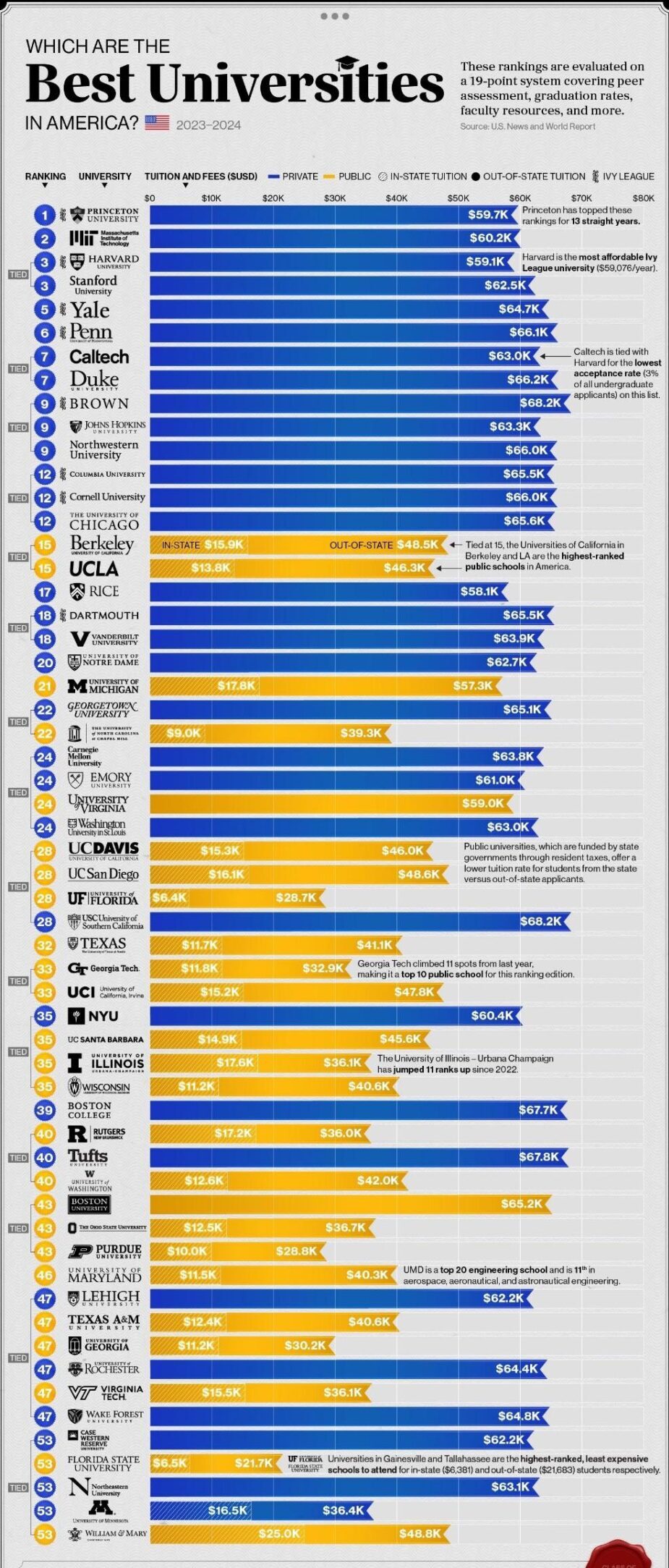
How to get in MIT?
MIT does not have a specific SAT score requirement for direct admission. However, the average SAT score for admitted students is 1540. This means that most admitted students scored between 1490 and 1590 on the SAT.
It is important to note that SAT scores are just one factor that MIT considers when making admissions decisions. The university also looks at your GPA, extracurricular activities, essays, and letters of recommendation. So, even if your SAT score is not in the middle 50% range, you may still be admitted if you have a strong application in other areas.
Here are some tips for getting admitted to MIT, regardless of your SAT score:
- Get a strong GPA. Aim for a GPA of 3.9 or higher.
- Take challenging courses. MIT is looking for students who have challenged themselves academically. Take AP, IB, or dual enrollment courses if they are available to you.
- Do well on your standardized tests. While there is no minimum SAT score, a high score will help your application.
- Get involved in extracurricular activities. MIT is looking for well-rounded students who are passionate about their interests. Get involved in clubs, sports, or community service. Clearly International Mathematical Olympiad (IMO) or IphO(The International Physics Olympiad) medalists have a decent shot
- Write strong essays. Your essays are your chance to tell your story and show MIT why you would be a great addition to their campus.
- Get good letters of recommendation. Ask teachers who know you well to write you letters of recommendation.
Princeton V/S MIT
Comparing streams between Princeton and MIT is like comparing apples and oranges – both are incredibly prestigious universities, but they excel in different areas. It’s not about one being definitively “better” than the other, but rather about finding the best fit for your academic interests and career aspirations.
Here’s a breakdown to help you decide:
Strengths of Princeton streams:
- Humanities and Social Sciences: Princeton boasts a particularly strong reputation in these fields, with renowned faculty and a focus on interdisciplinary exploration. If you’re passionate about literature, history, philosophy, or social change, Princeton could be your haven.
- Interdisciplinary Flexibility: Unlike MIT’s more structured engineering and science focus, Princeton encourages combining seemingly disparate subjects. You could study physics and philosophy, or computer science and creative writing, crafting a unique academic journey.
- Undergraduate Focus: Princeton prioritizes undergraduate education, ensuring you receive close mentorship and ample opportunities to engage with professors and participate in research. You’ll be part of a close-knit community where your voice is heard.
Strengths of MIT streams:
- STEM Powerhouse: MIT is undisputed king in engineering and science, boasting top-ranked programs, cutting-edge research, and industry connections. If you dream of building robots, designing the next generation of computers, or unraveling scientific mysteries, MIT is your launchpad.
- Hands-on Learning: MIT emphasizes real-world application and problem-solving. You’ll get your hands dirty in labs, design projects, and work alongside leading researchers, gaining practical skills alongside theoretical knowledge.
- Entrepreneurial Spirit: MIT fosters innovation and encourages students to translate their ideas into ventures. You’ll be surrounded by like-minded individuals, have access to resources like the Martin Trust Center for MIT Entrepreneurship, and learn to think like a changemaker.
Ultimately, the “better” stream depends on you. Consider:
- Your academic interests: What subjects truly ignite your passion? Do you thrive in theoretical exploration or hands-on application?
- Your career goals: What do you envision yourself doing after graduation? Does research, industry, or entrepreneurship appeal to you more?
- Your learning style: Do you prefer smaller, interactive classes or larger, lecture-based settings? Do you crave flexibility or a structured approach?
Visit both universities’ websites, explore their course offerings, and reach out to current students and faculty. This personalized research will help you discover where you belong and which stream will best nurture your academic and personal growth.
Remember, there’s no one-size-fits-all answer. Choose the environment that resonates with your unique academic and personal aspirations, and you’ll be on your way to an extraordinary journey, regardless of which prestigious institution you call home.
Undergraduate Degree Charts @MIT
School of Architecture and Planning
- Architecture (Course 4)
- Art and Design (Course 4-B)
- Planning (Course 11)
School of Engineering
- Aerospace Engineering (Course 16)
- Archaeology and Materials as Recommended by the Department of Materials Science and Engineering (Course 3-C)
- Artificial Intelligence and Decision Making (6-4)
- Biological Engineering (Course 20)
- Chemical-Biological Engineering (Course 10-B)
- Chemical Engineering (Course 10)
- Chemical Engineering as Recommended by the Department of Chemical Engineering (Course 10-C)
- Computer Science and Engineering (Course 6-3)
- Electrical Engineering and Computer Science (Course 6-2)
- Electrical Science and Engineering (Course 6-1)
- Engineering (Course 1-ENG)
- Engineering (Course 2-A)
- Engineering (Course 10-ENG)
- Engineering (Course 16-ENG)
- Engineering (Course 22-ENG)
- Materials Science and Engineering (Course 3)
- Materials Science and Engineering (Course 3-A)
- Mechanical and Ocean Engineering (Course 2-OE)
- Mechanical Engineering (Course 2)
- Nuclear Science and Engineering (Course 22)
School of Humanities, Arts, and Social Sciences
- Anthropology (Course 21A)
- Comparative Media Studies (CMS)
- Economics (Course 14-1)
- Global Studies and Languages (Course 21G)
- History (Course 21H)
- Humanities (Course 21)
- Humanities and Engineering (Course 21E)
- Humanities and Science (Course 21S)
- Linguistics and Philosophy (Course 24-2)
- Literature (Course 21L)
- Mathematical Economics (Course 14-2)
- Music (Course 21M-1)
- Philosophy (Course 24-1)
- Political Science (Course 17)
- Science, Technology, and Society/Second Major (STS)
- Theater Arts (Course 21M-2)
- Writing (Course 21W)
Sloan School of Management
- Business Analytics (Course 15-2)
- Finance (Course 15-3)
- Management (Course 15-1)
School of Science
- Biology (Course 7)
- Brain and Cognitive Sciences (Course 9)
- Chemistry (Course 5)
- Earth, Atmospheric, and Planetary Sciences (Course 12)
- Mathematics (Course 18)
- Mathematics with Computer Science (Course 18-C)
- Physics (Course 8)
MIT Schwarzman College of Computing
- Computer Science and Engineering (Course 6-3)
- Electrical Engineering and Computer Science (Course 6-2)
- Electrical Science and Engineering (Course 6-1)
Interdisciplinary Programs
- Chemistry and Biology (Course 5-7)
- Climate System Science and Engineering (Course 1-12)
- Computation and Cognition (Course 6-9)
- Computer Science and Molecular Biology (Course 6-7)
- Computer Science, Economics, and Data Science (Course 6-14)
- Urban Science and Planning with Computer Science (Course 11-6)
MIT Alumni
Stephen Hawking (1942-2018)
- British theoretical physicist and cosmologist
- Known for his work on black holes and the Big Bang
- Author of the book “A Brief History of Time”
- Graduated from MIT with a PhD in physics in 1966
Elon Musk
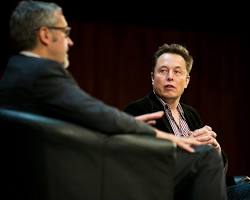
- South African-born American entrepreneur and businessman
- Founded X.com in 1999 (which later became PayPal), SpaceX in 2002 and Tesla Motors in 2003
- Oversaw the development of Falcon 9 and Dragon spacecraft
- Graduated from MIT with a bachelor’s degree in physics in 1995
Larry Page
- American computer scientist and Internet entrepreneur
- Co-founded Google with Sergey Brin while they were Ph.D. students at Stanford University
- Served as the CEO of Google from 1997 to 2001 and again from 2011 to 2015
- Graduated from MIT with a bachelor’s degree in computer engineering in 1994
Sergey Brin
- American computer scientist and Internet entrepreneur
- Co-founded Google with Larry Page while they were Ph.D. students at Stanford University
- Served as the President of Google’s parent company, Alphabet Inc., from 2015 to 2019
- Graduated from MIT with a bachelor’s degree in computer science and mathematics in 1995
Jeff Bezos
- American entrepreneur and investor
- Founded Amazon in 1994
- Served as Amazon’s CEO until July 5, 2021, and is the executive chairman
- Graduated from MIT with a bachelor’s degree in electrical engineering and computer science in 1994
Bill Gates
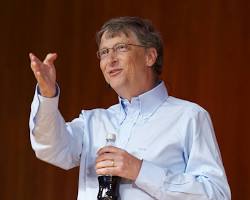
- American business magnate, software developer, investor, author, and philanthropist
- Co-founded Microsoft with Paul Allen in 1975
- Served as Microsoft’s chairman and CEO until 2000
- Graduated from MIT with a bachelor’s degree in mathematics and computer science in 1973
Arthur C. Clarke
- British science fiction author, screenwriter, futurist, and inventor
- Known for his works such as “2001: A Space Odyssey” and “Rendezvous with Rama”
- Graduated from MIT with a degree in mathematics in 1946
Aaron Ross
- American actor and film producer
- Known for his roles in “The Matrix” trilogy, “Seabiscuit,” and “The Lincoln Lawyer”
- Graduated from MIT with a degree in engineering in 1990
Julia Roberts
- American actress and producer
- Known for her leading roles in films like “Pretty Woman,” “Erin Brockovich,” and “Wonder”
- Graduated from MIT with a degree in English in 1991
John Williams

- American composer and conductor
- Known for scoring iconic films such as “Star Wars,” “Jaws,” and “Harry Potter”
- Graduated from MIT with a degree in music in 1945
Jane Goodall
- British primatologist, conservationist, and ethologist
- Known for her groundbreaking studies of chimpanzees in the wild
- Graduated from MIT with a bachelor’s degree in psychology and philosophy in 1964
Albert Einstein
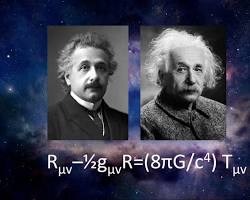
- German-born theoretical physicist
- Developed the theory of relativity, one of the two pillars of modern physics (alongside quantum mechanics)
- Graduated from MIT with a doctorate in physics in 1916
Barack Obama
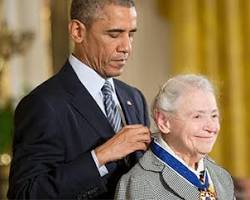
- 44th president of the United States
- Served from 2009 to 2017
- Graduated from MIT with a degree in political science in 1983
Al Gore
- 45th vice president of the United States
- Served from 1993 to 200